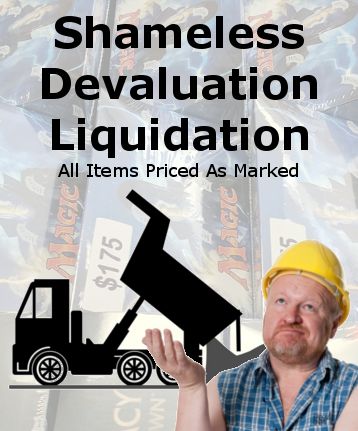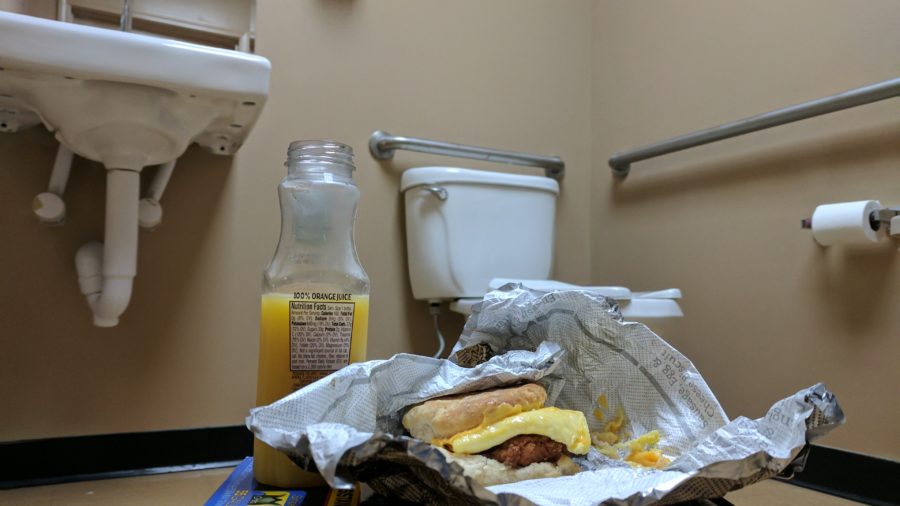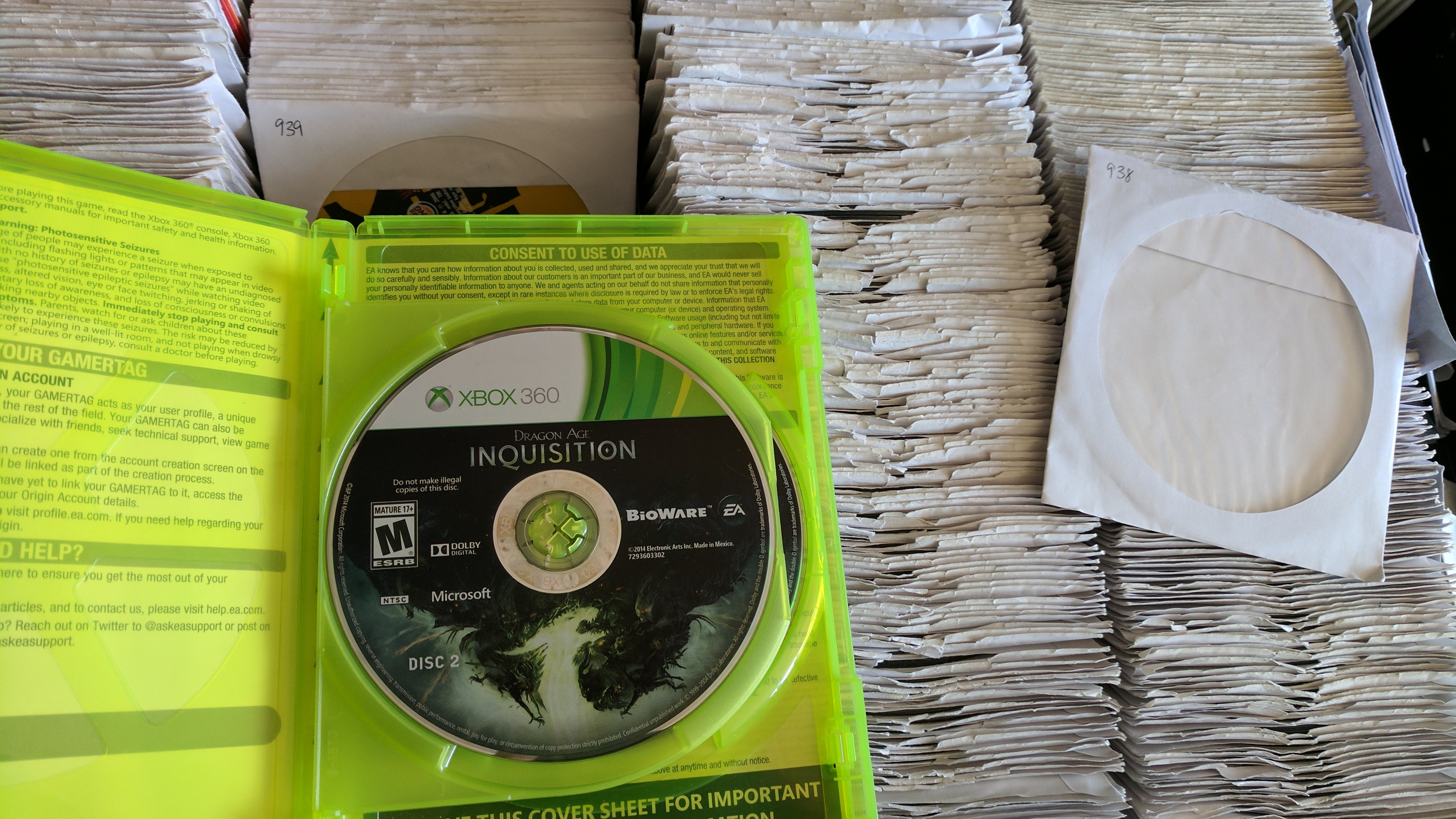I promise that this is my last post about Filthy Discounters for a while and that I will return to my regular semi-useful entries soon.
The new Archenemy: Nicol Bolas is a great product. It’s a boxed multiplayer Magic experience where you’re playing Magic: The Gathering, rather than a crappy board game with the MTG assets pasted on. It’s thoughtfully designed and by all reports a blast to play. It should have been great for a casual-focused store like mine.
It wasn’t.
Customers tipped me off early that the value of this product was being shredded before it had even been released. “Are you guys going to carry the new Archenemy box? Are you going to match the online price? Why are you making that face?”
Sure enough, I found that Massdrop had this product on presale at a price that would give a 16% margin over the direct price before fees. Unlike many Massdrop campaigns that have low limits on the total amount of product being dumped, this campaign offered 900 units, which soon became 1200 units as they realized that they were going to sell out.
I immediately cut my preorder number from sixteen to four, and then to two. The sales response that I got after release totally justifies the first cut, though I will probably end up ordering another copy or two.
1,200 units is a lot of units. I had to know where this product was coming from, so I and an out-of-state friend both ordered from the Massdrop campaign on different days. The packages that we received both had Massdrop’s administrative return address and no other information, but the tracking told us that both of our packages departed from Rockford, Illinois.
Of course, it’s possible that there were multiple sources for this campaign, but the posts about increasing the limit from 900 to 1,200 referred to a singular “vendor” that had secured more product. If there were multiple vendors and the Rockford, IL location that sent packages to both me and my friend sent out a modest 50 units, then the odds of both of us drawing the same vendor are 0.17%, or about 1.7 in a thousand.
I really did expect to find a distribution warehouse behind all of this given the volume involved, but as far as I know there aren’t any of those in Rockford. I reached out this morning to the stores in the area that seemed likely to deal in this product.
Black Dog Hobby and Game answered when asked if they were the ones who shipped the product for this campaign: “No, it wasn’t. We don’t deal with Massdrop at all and don’t do much with MtG either.” The person on the other end of the chat gave me some great information about the area and the stores that serve it. Thank you!
Cataclysm Games would neither confirm nor deny: “Hi Paul, we sell through many outlets, but we generally do not share specific information regarding products we sell through 3rd party outlets; we always direct people to our web site, www.mtg.biz. I’m sorry, but it’s a policy of ours to not discuss our sales outlets other than our website or physical location.”
The Gaming Goat, which quite honestly I suspected to be the source, flatly denied it: “Wasn’t us! Sorry!”
Hobbytown USA told me that they “do not deal with any magic the gathering products.”
Top Cut Comics: “We are not a seller on Massdrop, however we do have the Nicol Bolas Archenemy in stock.”
You can draw your own conclusions, but it’s always possible that there’s some other business with a shipping/receiving center in Rockford, rather than one of these stores being the culprit. I bet distribution knows. It’s hard to forget a 1200-unit order.
I wanted to get this information out, but other than the full force of my professional contempt being directed at the source of this dumping of a good product, none of this is really actionable, because it’s all within the rules. Wizards of the Coast allows distribution to dump immense amounts of products onto sellers who will happily destroy the market value of an otherwise solid product. Short-term, it’s a big win for WOTC and the distributor, both of whom will get their money whether the margin is 16% or 45%.
Long-term, this behavior eventually leads to a brand full of products that are either ultra-hot, ultra-limited unobtainium, or flogged-to-death racehorse corpses that lurch out of the opening gate and then immediately plow into the mud. It leads to fewer profitable game stores, which means that the stores which remain will be under-capitalized garbage hobby stores, where “hobby” is a descriptor of how seriously the operation of the business is taken rather than a designation of the store’s primary product type. The players who don’t abandon organized play altogether will have to endure the extreme temperatures, mystery fluids, and rodent hazards of their filthy clubhouse stores, owned by suckers who don’t know or don’t care that they’re throwing away the most useful years of their lives.
(The above paragraph is my entry in the Most Vitriolic Blog Post Paragraph Competition, which is a thing that should totally exist.)
There are alternatives. Asmodee recently made a splash by taking steps to more strictly control the flow of their product, and splitting majority-online businesses into their own (crappier) pricing tier. They’ve also implemented a maximum discount policy that protects their products from truly egregious dumping. I never would have predicted this move even a couple of years ago. Frankly, it’s the first glimmer of optimism I’ve had about tabletop games as an industry in a very long time.
The way that margins on many non-Asmodee products in this industry are being driven down is a natural consequence of information and marketplaces becoming more efficient. I would infer from WOTC’s statements about the importance of organized play that protecting these useful intermediaries from destruction would be part of their strategy for keeping their competitive card game profitable.
But if Wizards doesn’t want professionally-operated organized play locations, then they needn’t worry about value protection. They can totally just keep doing what they’re doing.















